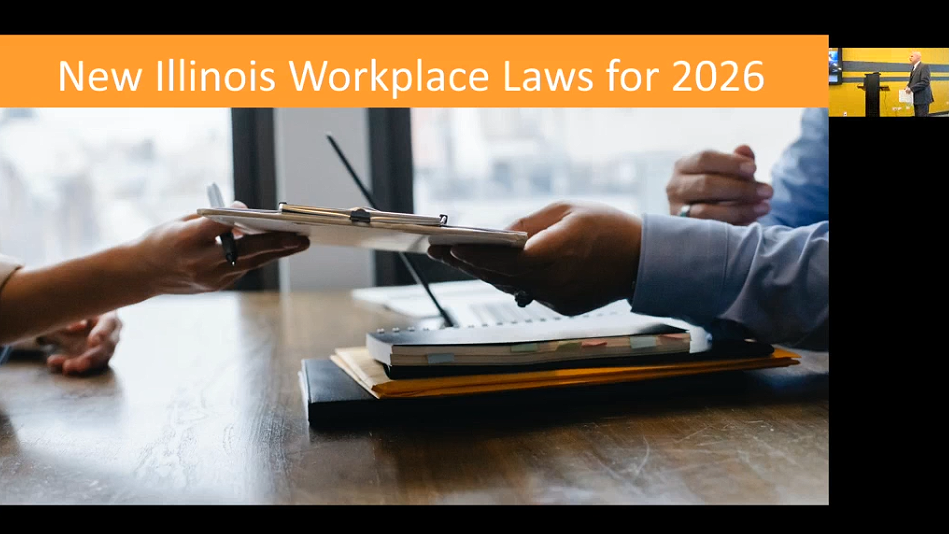Systems, Processes, and Checklists - All Critically Important to a Successful Law Office
I know, by the title of this article, you may be predisposed to believe that this article is based on how we, as lawyers, may attempt to look at successful manufacturing companies and apply their ways of doing business to our law offices. Nothing could be further from the truth.
For a law office to be successful and grow, certain infrastructure needs to be put in place to make certain parts of the infrastructure somewhat interchangeable so that the loss of one or two people does not derail the upward trajectory of the law firm. Please do not misunderstand: good people still count for a large portion of a law firm’s success, possibly the most important part. But systems and processes need to be put in place to minimize mistakes, malpractice, and to maximize efficiencies which, in turn, reduce legal fees for clients. Again, having top quality people helps make the systems run efficiently and optimally, but there still needs to be an understandable recognizable flow or “process” for all of your legal work.
For small law firms that only have between one and three attorneys, the “process” might start out as a comprehensive set of checklists. A law firm should never outgrow checklists, but they are the simplest way for a small law firm to begin building systems and processes to instantly help the law firm, and also lay the foundation for growing your law firm.
After being a longtime advocate of checklists, I read, and I encourage you to read, “The Checklist Manifesto,” “How to Get Things Right” by Atul Gawande. In Gawande’s New York Times bestseller, he explains how the airline industry has always been checklist driven.
For example, mechanics go through various levels of checklists every time to prepare a plane for flight. After a certain amount of air miles and hours in flight, a different set of checklists apply. Similarly, pilots go through a set of checklists before preparing to fly. Then, while in air, or when approaching problems, pilots rely on a separate set of checklists. By and large, the airline industry is incredibly safe and, according to the author Gawande, it is in large part due to their reliance on checklists.
Gawande then advocated such a checklist system for hospitals in order to minimize errors in patient care and surgery. To no one’s surprise, with the creation of multiple levels of checklists for ordinary patient care, pre-surgery care, pre-surgery preparation, surgery and post-surgery follow up, patient care improved, mistakes dramatically dropped, post-surgical patient health improved and it unequivocally improved patient care. Reliance on checklists also dramatically reduced malpractice actions against the doctors and hospitals.
The natural extension to the legal field is that lawyers must use checklists as much as possible. For example, why not have a definitive checklist for a residential real estate closing? A commercial real estate closing? An asset purchase agreement? Stock purchase agreement? Commercial lease review? Also, what about state law litigation? How could you train someone on the continuum of the life span of a lawsuit? Something as simple as the timing of filing a complaint, and the responsive limitations on filing motions to dismiss, answers, affirmative defenses, etc. What are all of the discovery tools used for the lawsuit? How can you make sure none are missed? What comes first? Request to admit? Request to produce documents? Depositions? How do you handle experts?
Imagine having a compelling and detailed checklist, or litigation handbook, specific to your firm’s “process” encompassing the local rules where every new attorney and attorney thereafter would need to understand in the process for litigation.
Take note, each one of these subsets of litigation can have their own checklists. For example, there may be a certain process to make a determination whether or not to file a motion to dismiss (under what specific rule?) or motion for a bill of particulars. What is the strategy behind the difference? Is there a difference in your checklist when you are the plaintiff? Or the defendant? Certainly, strategy differs. As you can see, there is empirical evidence that demonstrates that checklists minimize mistakes and, as a result, minimizes malpractice actions. However, checklists are also great teaching tools, and make for far more thorough lawyering.
Imagine reviewing a lease prepared by the landlord, on behalf of your client, the tenant. The lease may be completely silent on tenant friendly and necessary clauses such as use of common area, a non-disturbance agreement, the allocation of insurance requirements, and how to calculate the “lease year.” However, as you are reading the lease, you would have to rely on your memory to catch all the subtle nuances that need to be addressed for the benefit of the tenant. However, if you are reviewing the lease with a checklist in hand, you would be able to simply identify all the clauses that are missing from the lease that you would want incorporated into the lease for the benefit of your client, the tenant.
Checklists help catch those clauses and sections of documents that are completely missing that would benefit your client. The same goes for equipment leasing arrangements, product line purchases, asset purchase agreements, and all other documents that are reoccurring in your office.
Attorneys should not consider themselves a jazz musician that just improvises on every document and in every case. Attorneys are strategists, technicians, and critical thinkers. You should not be held to the standard of memorizing what every legal document needs to contain. Checklists take the memorization factor out of document drafting, complex litigation, and leaves the critical and strategy thinking to the attorneys.
In a growing law office, checklists give birth to systems or processes. In the current vernacular, “systems” tend to subtly mean computer systems and servers. What I am referencing is a “process” which is a horizontal workflow for legal services. A process needs to start somewhere in your law office, and conclude with a client or court deliverable. How does that work in your law office? Is it internally published? Could everybody recite it clearly?
Any process for any practice group needs to be well established, and everyone involved in that practice group needs to understand how the system works, including all of the administrative assistants. Great personal injury firms have a system in place for evaluating cases, rejecting cases (with polite non-representation letters), obtaining medical records, interviewing witnesses, experts, and taking the case to trial. They would all be better off if these systems and processes were put in writing and built around sub checklists. Very experienced personal injury trial attorneys have their system locked in place (in their heads) and the administrative assistant and associate attorneys know it. However, the learning curve improves dramatically, and the mistakes for malpractice drop dramatically, once that process is documented.
There is simply not a practice area in law that would not benefit from a well-established process in your office. The easiest practice area to process in a law office is estate planning. A client calls for an appointment. You either send out a questionnaire for the client to fill out prior to the first meeting, or you fill it out with the client during the first meeting. You talk through the various estate planning options, and in many standard estate plans, the path for documenting the client’s estate plan can be established in the first meeting. More complicated estate plans may take additional time.
Once the type of estate plan is established, the client will leave the office, you may, depending on your process, memorialize the agreement of what documents need to be prepared in a letter to the client which may or may not include an estimate of fees. Next, the documents are prepared under some established timeline; the documents are sent to the client, with a cover letter that gives a timeframe for receiving comments on the documents. If changes need to be made to the documents, they are, and a meeting is scheduled for the clients to come in to execute their documents. At that meeting, any trust funding issues are handled, and there is an understanding among the attorneys and clients on the post execution trust funding for the clients. All of these steps are laid out linearly in a horizontal timeline to be completed within your firm’s processed timeline. Of course, items may get delayed because clients delay on their response on document review. However, under no circumstances should you change your process by delaying the delivery of the documents, or making changes pursuant to the client’s requests. This is only one example of a process that should and could be documented in your law office for estate planning. Other practice groups can benefit similarly.
Practice groups are not the only part of the law office that can benefit from a process and checklist. You should use practice management checklists for your office. For example, human resources checklists, financial checklists for bank reconciliations and trust accounting, internal processes and procedures for opening files, closing files, disengaging with clients, mail, phone etiquette, time keeping, and other similar areas. Clearly creating a checklist in the processes takes time, but it is an investment in your law office to grow the future generations of lawyers and administrative assistants in your office. Each category of employee should have a manual articulating his or her job throughout the day, the week, and the month. Most importantly, your billing and office manager needs to document a handbook for his or her work relating to the financial aspects of the firm. If you are engaged in the creation of the bills, banking, incoming checks, and bill paying, you need to create checklists and processes so that one day you can hand that task off (or a portion of it) to a competent assistant that will then benefit from your experience. Hopefully your experience will be memorialized in the checklists and processes articulated herein.
In conclusion, there is no question that your law office, and all of us being dedicated to the profession of law, can advance client services with checklists and processes. Please take the time to invest in your law practice by creating these important structural documents for the betterment of your practice, client service, and our profession.
Kerry M. Lavelle started out as a solo practitioner, is the founding partner of Lavelle Law, Ltd., a 26-attorney law firm serving the Chicagoland area. He is the author of "THE BUSINESS GUIDE TO LAW: CREATING AND OPERATING A SUCCESSFUL LAW FIRM." It can be found on the ABA website at: http://bit.ly/1J1p0Aa. Kerry can be reached at 847-705-7555 or at klavelle@lavellelaw.com.
More News & Resources
Lavelle Law News and Events












